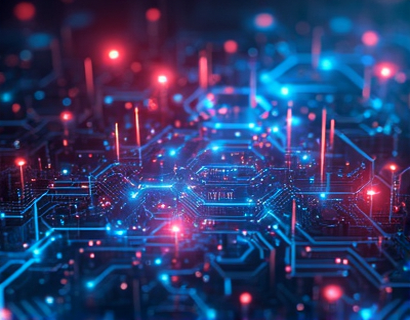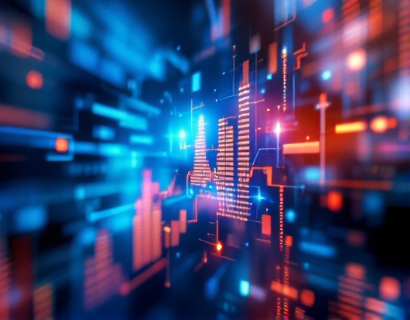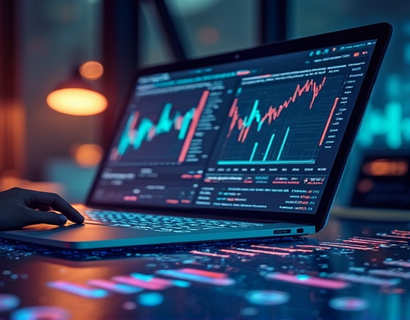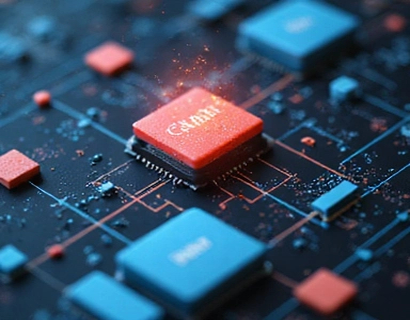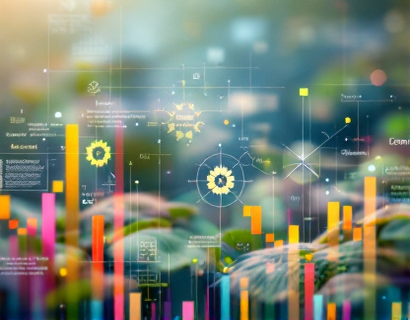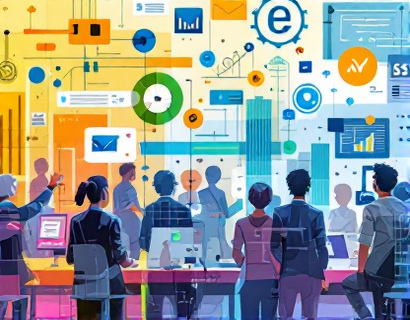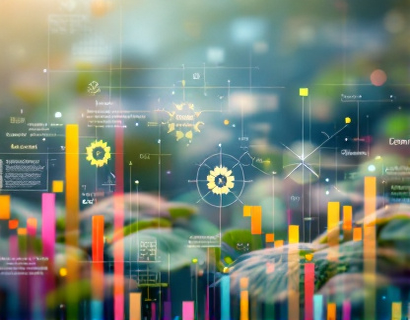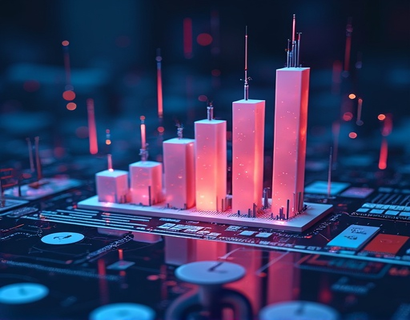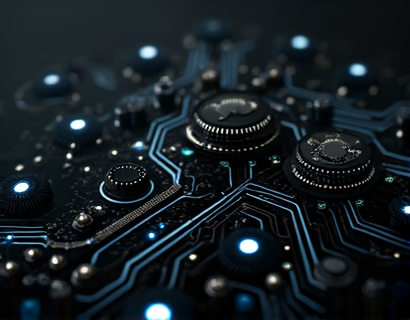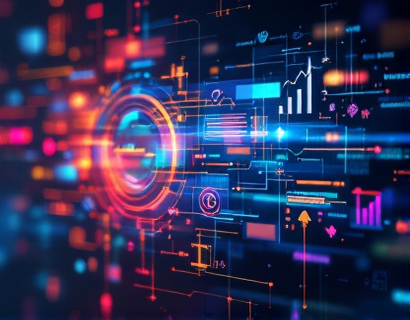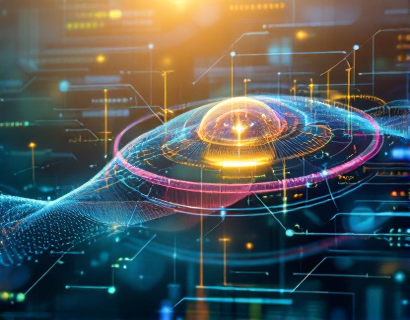Transforming Industries with Advanced Tech: The Convergence of Crypto and AI
The integration of cryptocurrency and artificial intelligence is ushering in a new era of digital innovation, fundamentally altering how we interact with technology and each other. This convergence is not just a technological advancement but a paradigm shift that promises to revolutionize various industries, from finance and healthcare to entertainment and beyond. As tech enthusiasts and early adopters, understanding the potential and implications of this synergy is crucial for harnessing its full potential.
Understanding Cryptocurrency and AI
Cryptocurrency, often referred to as digital or virtual currency, operates on blockchain technology, a decentralized ledger that ensures transparency, security, and immutability. On the other hand, artificial intelligence involves the simulation of human intelligence processes by machines, particularly computer systems. These processes include learning, reasoning, and self-correction. When combined, these technologies create a powerful toolset capable of transforming traditional systems into smarter, more efficient, and secure platforms.
The Synergy of Crypto and AI
The fusion of cryptocurrency and AI leverages the strengths of both domains. AI's ability to process vast amounts of data quickly and accurately complements blockchain's secure and transparent transaction capabilities. This synergy enables the development of advanced applications that can automate complex tasks, enhance security, and provide unprecedented levels of personalization and efficiency.
Enhancing Financial Services
One of the most significant areas impacted by the convergence of crypto and AI is finance. Traditional banking systems are being transformed through the adoption of blockchain for secure and transparent transactions, while AI algorithms optimize trading strategies, risk management, and customer service. Smart contracts, self-executing contracts with the terms directly written into code, are becoming increasingly popular, reducing the need for intermediaries and lowering transaction costs. AI-driven analytics can predict market trends with higher accuracy, giving investors a competitive edge.
Decentralized finance (DeFi) platforms are another prime example of this synergy. These platforms offer a range of financial services such as lending, borrowing, and trading without traditional financial institutions. AI enhances these platforms by providing sophisticated risk assessment tools and personalized financial advice, making DeFi more accessible and user-friendly.
Revolutionizing Healthcare
The healthcare industry is also witnessing a transformative shift thanks to the integration of crypto and AI. Patient data security and privacy are paramount, and blockchain provides a robust solution by ensuring data integrity and control. AI algorithms can analyze vast datasets to identify patterns, predict disease outbreaks, and personalize treatment plans. This combination not only improves patient outcomes but also optimizes healthcare operations and reduces costs.
Telemedicine platforms powered by AI and blockchain are becoming more prevalent, offering remote consultations and secure data sharing. These platforms ensure that patient data is tamper-proof and accessible only to authorized personnel, enhancing trust and efficiency in healthcare delivery.
Transforming Entertainment and Media
In the entertainment and media sector, the convergence of crypto and AI is redefining content creation, distribution, and consumption. Blockchain-based platforms enable creators to monetize their work directly, bypassing traditional intermediaries. AI algorithms can analyze viewer preferences to recommend content, optimize streaming quality, and even generate original content. This synergy fosters a more decentralized and equitable media landscape.
NFTs (Non-Fungible Tokens), a unique application of blockchain technology, have gained popularity in the art and collectibles market. AI can enhance NFTs by creating unique digital art pieces, generating dynamic and interactive experiences for collectors. The combination of these technologies opens new revenue streams for artists and creators while providing enthusiasts with exclusive and verifiable digital assets.
Enhancing Supply Chain Management
The supply chain industry stands to benefit greatly from the integration of crypto and AI. Blockchain ensures transparency and traceability, allowing all parties to track products from origin to destination. AI algorithms can optimize logistics, predict demand, and reduce waste by analyzing real-time data. This combination leads to more efficient and sustainable supply chains, reducing costs and improving customer satisfaction.
Smart contracts on blockchain can automate payment processes based on predefined conditions, ensuring timely and accurate transactions. AI-driven analytics can identify bottlenecks and inefficiencies, enabling proactive measures to maintain smooth operations.
Improving Cybersecurity
Cybersecurity is a critical concern in the digital age, and the combination of crypto and AI offers robust solutions. Blockchain's decentralized and cryptographic nature makes it inherently secure, while AI can detect and respond to threats in real-time. AI-powered security systems can analyze patterns and anomalies to predict and prevent cyberattacks, enhancing the overall security posture of organizations.
Crypto assets can be used to create decentralized security protocols, distributing security functions across a network of nodes. This approach reduces the risk of single points of failure and enhances resilience against sophisticated attacks.
Challenges and Considerations
Despite the numerous benefits, the convergence of crypto and AI is not without challenges. Regulatory uncertainties, technological complexities, and ethical concerns need to be addressed to fully realize the potential of these technologies. Ensuring compliance with existing regulations while innovating is a delicate balance. Additionally, the computational resources required for AI and blockchain can be substantial, raising environmental concerns.
Education and awareness are crucial for widespread adoption. Both technologies are complex and often misunderstood, leading to skepticism and resistance. Providing accessible and accurate information can help demystify these technologies and foster a more informed and enthusiastic community.
The Future Landscape
The future of digital innovation through the convergence of crypto and AI is promising. As these technologies continue to evolve, we can expect even more sophisticated applications across various sectors. The development of more efficient consensus mechanisms, advancements in quantum computing, and the standardization of protocols will further enhance the capabilities of crypto and AI systems.
Interoperability between different blockchain platforms and AI systems will become increasingly important, enabling seamless integration and collaboration. This will lead to a more connected and intelligent digital ecosystem, where devices, systems, and services work harmoniously to provide enhanced user experiences.
In conclusion, the integration of cryptocurrency and artificial intelligence is a powerful force driving innovation and transformation across multiple industries. By leveraging the unique strengths of both technologies, we can create more secure, efficient, and personalized digital experiences. As tech enthusiasts and early adopters, embracing and understanding this synergy will position us at the forefront of the next technological revolution.





